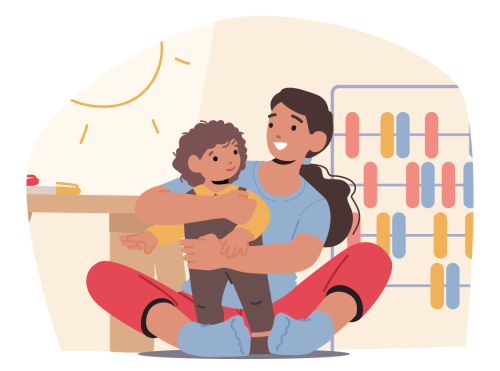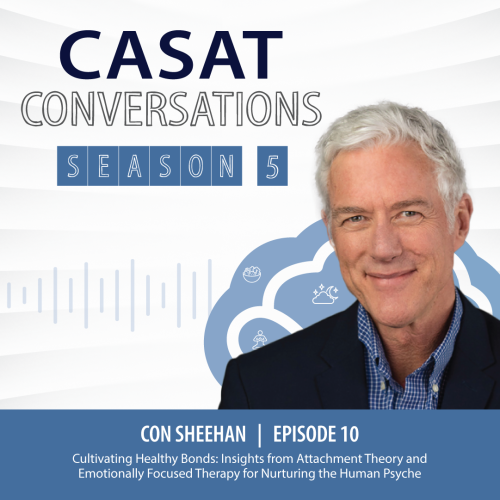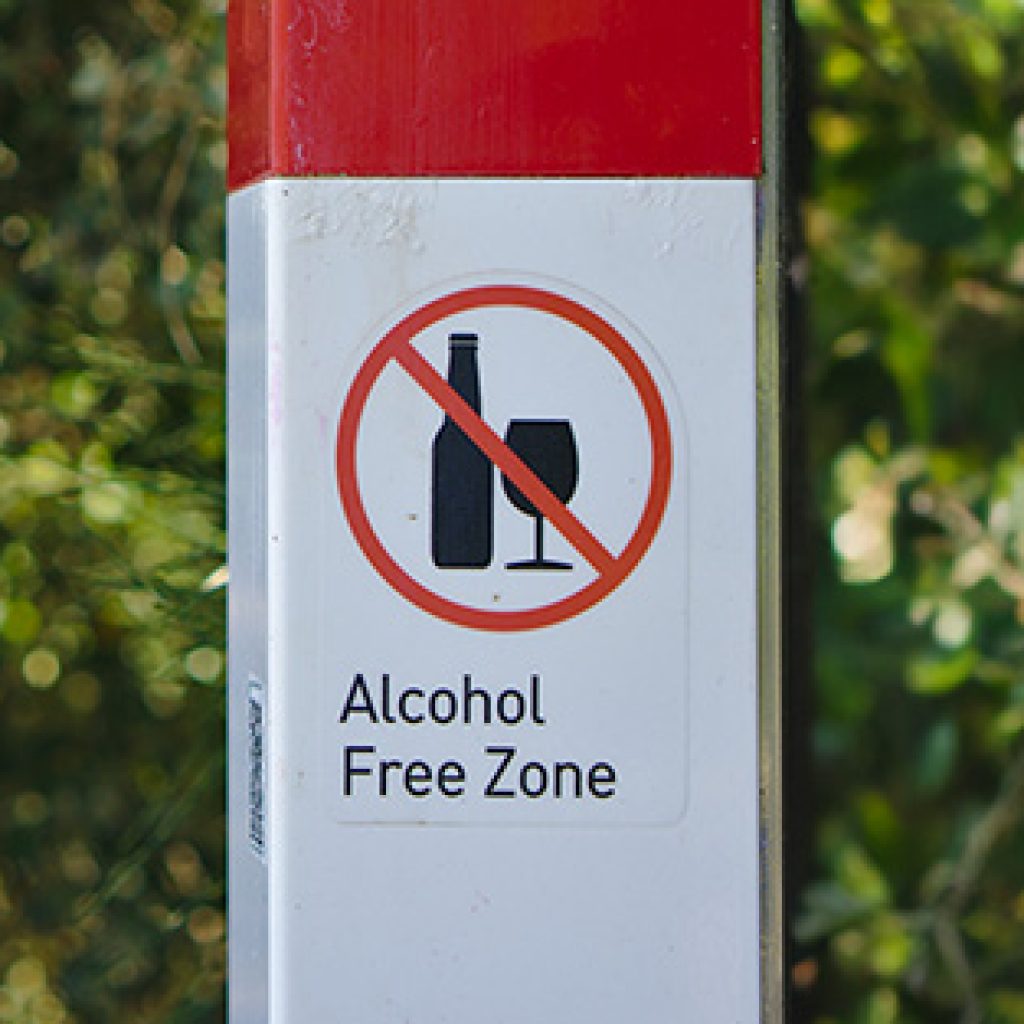The Lifelong Impact of Social Connections on Well-being
As human beings, we are wired to seek social connection. Our need for meaningful connections changes throughout our lives, yet one thing remains true, and that is that social connections have a significant impact on our health and well-being. Technology connects us more than ever, yet many individuals feel increasingly isolated and disconnected. Loneliness and social isolation are well-known factors that can negatively affect health and well-being. This exploration delves into the dynamic interplay between social connections and the human lifespan, shedding light on the intricate web of relationships that mold our journey from inception to maturity.
The Important Role of Social Connections Throughout Life
Social connections profoundly influence our well-being at every stage of life. The impact of social connections is far-reaching and multifaceted, from the early bonds formed in childhood to the many relationships that define our adult years. Below are each life stage and the relevant social connections in that stage.

Early Foundations: Building Trust Through Parental Bonds (0-5 years)
In the formative years of early childhood, social connections predominantly revolve around the foundational bonds formed with parents or caregivers. Secure attachments during infancy lay the groundwork for emotional security and the development of basic trust in other human beings. As children learn to navigate their surroundings, the quality of these early connections sets the stage for future social interactions.
 Childhood: Beginning to Navigate Peer Relationships (6-12 years)
Childhood: Beginning to Navigate Peer Relationships (6-12 years)
Peer relationships in childhood play a pivotal role in individuals’ social and emotional development. Interactions with peers allow children to learn essential social skills, such as cooperation, communication, and conflict resolution. These relationships also form a sense of belonging and identity, laying the foundation for future social interactions and emotional well-being.
 Adolescence: Shaping Identity (13-19 years)
Adolescence: Shaping Identity (13-19 years)
During adolescence, the focus shifts to identity formation. Peer influence, friendships, and romantic relationships become instrumental in shaping one’s sense of self. The quality of these social connections significantly impacts the individual’s evolving identity, contributing to a strong foundation for the challenges of adulthood.
 Young Adulthood: Forming Intimate Connections (20-40 years)
Young Adulthood: Forming Intimate Connections (20-40 years)
In young adulthood, the emphasis turns to forming intimate relationships, friendships, and professional connections. These social bonds provide emotional support, shared experiences, and contribute to the establishment of autonomy. The networks built during this period become pillars of strength in navigating life’s complexities.
 Middle Adulthood: Balancing Family and Career (41-60 years)
Middle Adulthood: Balancing Family and Career (41-60 years)
Middle adulthood sees the intertwining of family relationships and career connections. Balancing responsibilities at home and work requires robust social networks. Maintaining meaningful connections becomes paramount in fostering a sense of fulfillment and resilience during this stage of life.
 Elderhood: Nurturing Social Support (61+ years)
Elderhood: Nurturing Social Support (61+ years)
As individuals enter elderhood, social support networks become increasingly vital. Older adults rely on these connections for emotional support, companionship, and assistance with daily activities. Engaging in social activities is not only enjoyable but has been linked to better cognitive function and overall well-being.
Social Connection Plays a Critical Role in Health
From our first breath to our last breath, the quality and quantity of our social connections emerge as pivotal factors in determining the richness of our life experiences. These connections shape our physical, psychological, and emotional landscapes. Research underscores the significant impact of social connections on fundamental biological needs, physical and mental health, longevity, and overall life satisfaction. Each aspect is briefly summarized below.

Social Connection is a Biological Need
Understanding the biological roots of social connection is essential, as research reveals that meaningful relationships stimulate the growth of new neural connections and support neuroplasticity in the brain. The brain’s wiring for social interaction, facilitated by neurotransmitters like oxytocin, fosters feelings of trust and bonding, promotes emotional resilience, and reduces stress, highlighting the profound impact of social connections on cognitive function and mental well-being.

Physical Health
Robust social connections have tangible benefits for physical health, including a strengthened immune system, improved cardiovascular health, and better overall well-being. Engaging in positive social interactions has been associated with lower stress levels, contributing to a reduced risk of chronic diseases and promoting longevity.

Mental Health
Meaningful social connections have been consistently linked to improved mental health, contributing to lower rates of depression and anxiety. The emotional support and sense of belonging derived from social ties create a protective buffer against life’s challenges, enhancing overall psychological well-being.

Quality of Life
Social connections significantly enhance the quality of life by providing emotional support, fostering a sense of belonging, and creating opportunities for shared experiences. Meaningful relationships contribute to increased life satisfaction, improved mental well-being, and a deeper sense of purpose, collectively enriching the overall quality of one’s life.

Longevity
Strong social connections contribute to increased longevity by providing stress-buffering support, promoting healthier lifestyle choices, and fostering positive mental health. The sense of purpose and belonging derived from meaningful relationships enhances overall well-being, emphasizing the profound impact of social ties on a longer and healthier life.
The Impact of Loneliness and Social Isolation
While it’s well understood that positive social connections impact our physical and mental well-being, it’s also well understood that loneliness and isolation are detrimental to our health. Let’s take a moment to explore both social isolation and loneliness. Social isolation can be objectively measured by assessing your interactions with people and community participation. It involves factors such as living arrangements, engagement in community activities, and time spent with friends and family. On the other hand, loneliness is a subjective experience, reflecting an individual’s perception of whether their relationships and community engagements satisfy their innate need for social connection. The question arises: Do social relationships adequately fulfill the fundamental desires to be in the company of others, to be seen, understood, valued, and loved?
Recent research has revealed several key findings highlighting the significant impact of loneliness and social isolation on various aspects of well-being. In terms of physical health outcomes, social isolation shows stronger associations, including heightened mortality risk, increased susceptibility to stroke, cognitive impairment, and physical limitations. A lack of social connection can increase the risk of premature mortality as much as smoking up to 15 cigarettes a day. Conversely, loneliness is prominently linked to various psychological outcomes, exhibiting consistently stronger associations with factors such as depression, anxiety, and dementia. Social isolation surpasses loneliness in predicting mortality risk, with a 29% increased risk compared to 26%. Wakened social connections have an estimated economic impact of approximately $6.7 billion in Medicare spending. These findings emphasize the intricate interplay between social connections and well-being across various dimensions, underscoring the importance of a holistic understanding of their significance.
The Surgeon General, Vivek Murthy just published a new health advisory titled “Our Epidemic of Loneliness and Isolation: The U.S. Surgeon General’s Advisory on the Healing Effects of Social Connection and Community”. This advisory emphasizes the critical role of social connection in individual and community health, highlighting the repercussions of its absence. This advisory discusses what is commonly viewed as an individual challenge and highlights the cultural, community, and societal dynamics influencing connection and disconnection. It emphasizes that addressing loneliness and isolation is essential to Public Health.
Building and nurturing social connections involves prioritizing quality over quantity, emphasizing the depth and meaningfulness of relationships based on mutual trust, empathy, and understanding. While digital communication has merits, face-to-face interaction remains unparalleled, allowing for nuanced communication through body language and facial expressions. Actively engaging in communities, whether online or offline, fosters a sense of belonging and meaningful connection, as shared interests provide a foundation for relationships. Additionally, practicing active listening and empathy in conversations contributes to a supportive social environment, strengthening connections and fostering understanding.
The impact of social bonds on mental health cannot be overstated. In a world increasingly characterized by virtual interactions, the authentic significance of genuine social connections cannot be underestimated. The intricate dance between our brains and social bonds intricately shapes our mental and physical well-being, emphasizing the critical role of fostering meaningful connections throughout our lives. Recognizing this significance, from childhood through elderhood, becomes vital for public health.
Ready to Learn More:
 Listen to Season 5 of CASAT Conversations. In episode 10, you’ll hear from Cornelius Sheehan, LCSW, has he shares his extensive experience with attachment theory and Emotionally Focused Therapy. You’ll gain valuable insights into how early relationships shape our ability to form meaningful bonds and discover strategies for cultivating healthy and meaningful connections. Join us in exploring the complex tapestry of social connections and mental well-being, offering practical insights and strategies for navigating the intricacies of human connection.
Listen to Season 5 of CASAT Conversations. In episode 10, you’ll hear from Cornelius Sheehan, LCSW, has he shares his extensive experience with attachment theory and Emotionally Focused Therapy. You’ll gain valuable insights into how early relationships shape our ability to form meaningful bonds and discover strategies for cultivating healthy and meaningful connections. Join us in exploring the complex tapestry of social connections and mental well-being, offering practical insights and strategies for navigating the intricacies of human connection.
References
Farkash, H., Farkash, H., Lahad, M., Lahad, M., & Aharonson-Daniel, L. (2023). Do Attachment Orientations Relate to Coping with Crises? Lessons from a Cross-Sectional Study during the COVID-19 Pandemic. International Journal of Environmental Research and Public Health, 20(12), 6177.
Goddard, Isable. (2023) What does friendship look like in America? Pew Research Center. https://www.pewresearch.org/short-reads/2023/10/12/what-does-friendship-look-like-in-america/#:~:text=Number%20of%20close%20friends&text=Some%208%25%20say%20they%20have,of%20those%20younger%20than%2030.
Joanna H. Hong, Julia S. Nakamura, Lisa F. Berkman, Frances S. Chen, Koichiro Shiba, Ying Chen, Eric S. Kim, & Tyler J. VanderWeele. (2023) Are loneliness and social isolation equal threats to health and well-being? An outcome-wide longitudinal approach, SSM – Population Health, 23, 101459. https://doi.org/10.1016/j.ssmph.2023.101459
Murad, H. (2021). Cultural Stress: The Ubiquitous Stressor Hiding in Plain Sight. Advances in Mind-Body Medicine, 35(2), 14-16.
Murthy, V. H. (2020). Together: the healing power of human connection in a sometimes lonely world. First edition. New York, NY, Harper Wave, an imprint of HarperCollins.
Office of the U.S. Surgeon General. (2023) Our Epidemic of Loneliness and Isolation: The U.S. Surgeon General’s Advisory on the Healing Effects of Social Connection and Community. Department of Health & Human Services.
Sagone, E., Commodari, E., Indiana, M. L., & La Rosa, V. L. (2023). Exploring the Association between Attachment Style, Psychological Well-Being, and Relationship Status in Young Adults and Adults-A Cross-Sectional Study. European journal of investigation in health, psychology and education, 13(3), 525–539. https://doi.org/10.3390/ejihpe13030040
Blog Post Tags:
Related Blog Posts
Related Learning Labs
Related Resources
.
- Buscar Tratamiento de Calidad para Trastornos de uso de Sustancia (Finding Quality Treatment for Substance Use Disorders Spanish Version)
- Finding Quality Treatment for Substance Use Disorders
- Focus On Prevention: Strategies and Programs to Prevent Substance Use
- Monthly Variation in Substance Use Initiation Among Full-Time College Students
- The National Survey on Drug Use and Health (NSDUH) Report: Monthly Variation in Substance Use Initiation Among Adolescents








